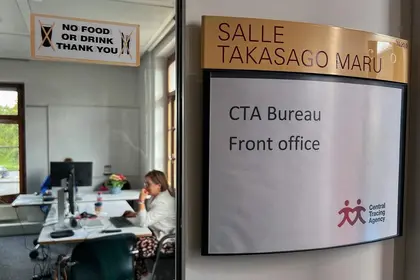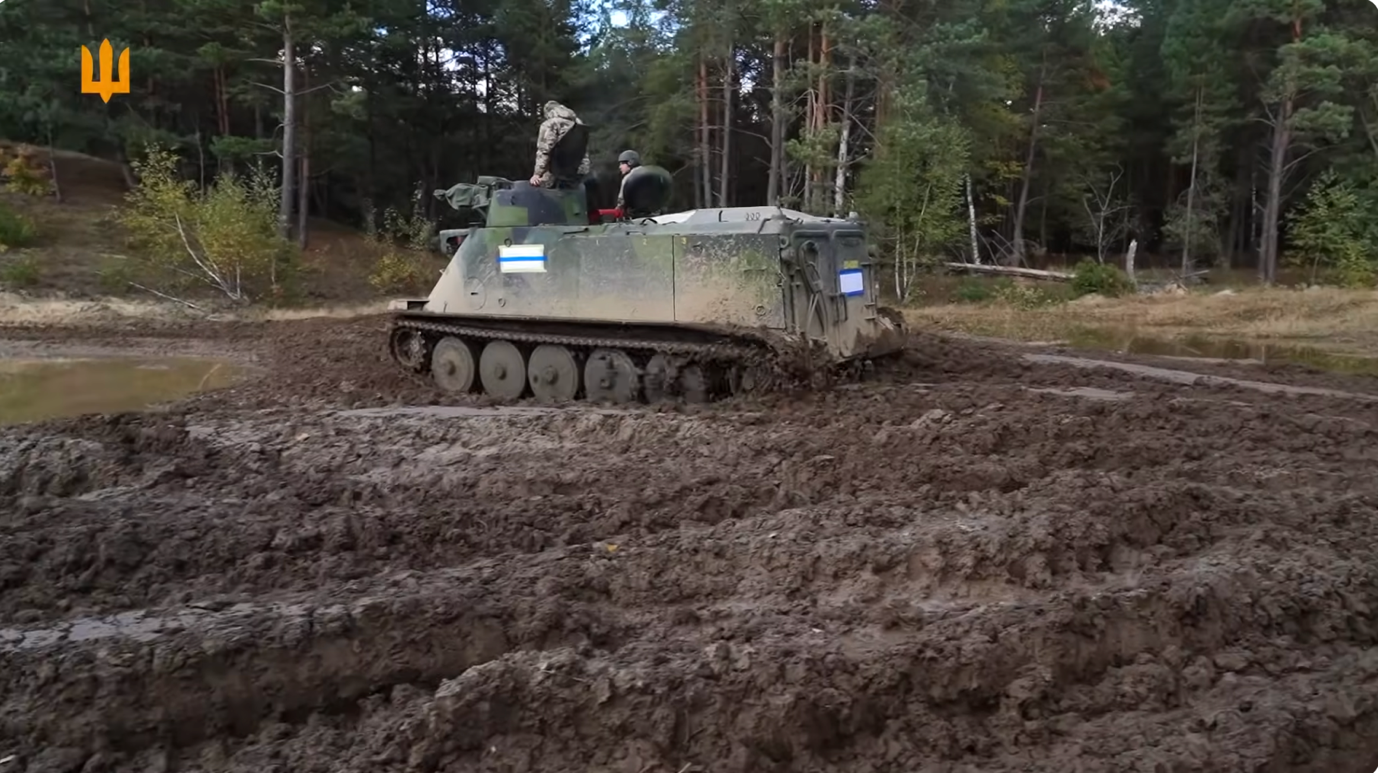A beautiful old manor on the outskirts of Geneva seems the image of peace and tranquillity, but inside the horrors of the war in Ukraine are ever present.
Dozens of people, most speaking Ukrainian or Russian, are urgently working phones and computers to help locate and determine the fate of prisoners of war and others who have disappeared in the conflict.
JOIN US ON TELEGRAM
Follow our coverage of the war on the @Kyivpost_official.
“Sometimes it is too hard. Emotionally hard,” said Natalia Novyk.
She heads a team of Ukrainian speakers taking calls from people seeking news of their loved ones from the Red Cross’s Central Tracing Agency (CTA).
Shortly after Russia invaded its neighbour in February, the International Committee of the Red Cross created a special CTA bureau focused exclusively on searching for those captured or missing in the fog of that war.
The ICRC first set up its CTA system more than 150 years ago to help people locate lost loved ones in times of crisis.
But this is the first dedicated CTA bureau set up for a specific international armed conflict in more than 30 years, and its largest operation since World War II.
The Ukraine war bureau counts 28 telephone operators and dozens of other staff, spread across three offices in Ukraine, Russia and the Swiss centre.
– Invisible scars –
During a recent tour of the centre, ICRC Director-General Robert Mardini told AFP its work was hard, but vital.
“This is very often one of the less visible scars of war. But it’s so important for families to know about the fate of their sons and husbands in the midst of violent armed conflict,” he said.
Nearby, in the buzzing Ukrainian-language call centre, Novyk recalls wives bursting into tears when told their husbands had filled out a registration card proving they were alive and being held as a prisoner of war.
Her blue eyes well up with tears as she describes how, despite no space on the card to write anything other than identification details, the men often squeezed in a personal message to say “he loves you and he is alive”.
Anastasia Kushleyka, who heads the Russian-language case workers seeking to track those reported missing, also describes the strange, privileged feeling of passing on personal messages from families to PoWs.
“People are announcing the births of their children,” she said. “It is extremely, extremely emotional, (and) gives us value every day.”
– 900 enquiries a day –
Some of those messages also expose the complex nature of this war, she said, pointing to a Russian PoW being held in Ukraine.
In his message to his mother he asked: “Can you please send me the phone number of grandma who is in Kyiv, so on the way back I can stop by?”
This note, Kushleyka said, contains “all you need to know on the personal level about this conflict”.
Often though, there is no information to share.
The bureau manages around 900 enquiries a day and since March it has been able to provide more than 3,000 families with information about the fate of their loved ones.
But it has also received nearly 29,000 calls and emails seeking information, Mardini said, acknowledging that “much more needs to be done”.
Marta Pawlak, head of the CTA front office, stressed that taking down details and trawling through data “is the visible part of what we do”.
“The invisible part of this work is basically to listen,” she told AFP, pointing out that often, callers “are in despair, they’re in distress… They are crying”.
– ‘Priceless’ –
And staff never know what awaits them when they pick up the phone or open an email.
“It is very heavy. Sometimes you have calls of despair, you have calls of gratitude, but you also have angry calls,” she said, stressing that all those working at the centre have access to psychological support and counselling.
Inna Iashchenko, who is part of the team that processes the first emails and forms requesting tracing, agrees it can be rough.
A day earlier, a woman searching for her husband had attached several pictures of him alive alongside social media pictures of a dead man she suspected might be him.
“For me, it was not clear if it was really her husband,” she said.
Desperate families trawling social media for a sign of their loved ones can be helpful, but can also turn up a lot of false positives.
Robert Przdepelski, a caseworker in the Russian section, recently received a request to organise the recovery of a dead body, after a mother found a picture of a dead soldier she believed was her son.
“After cross-checking with our database, in fact, the person was visited two weeks ago in prison by ICRC,” Przdepelski said.
Kushleyka said such cases make all the heavy moments worthwhile.
“To deliver this kind of news, this is of course priceless.”
You can also highlight the text and press Ctrl + Enter



